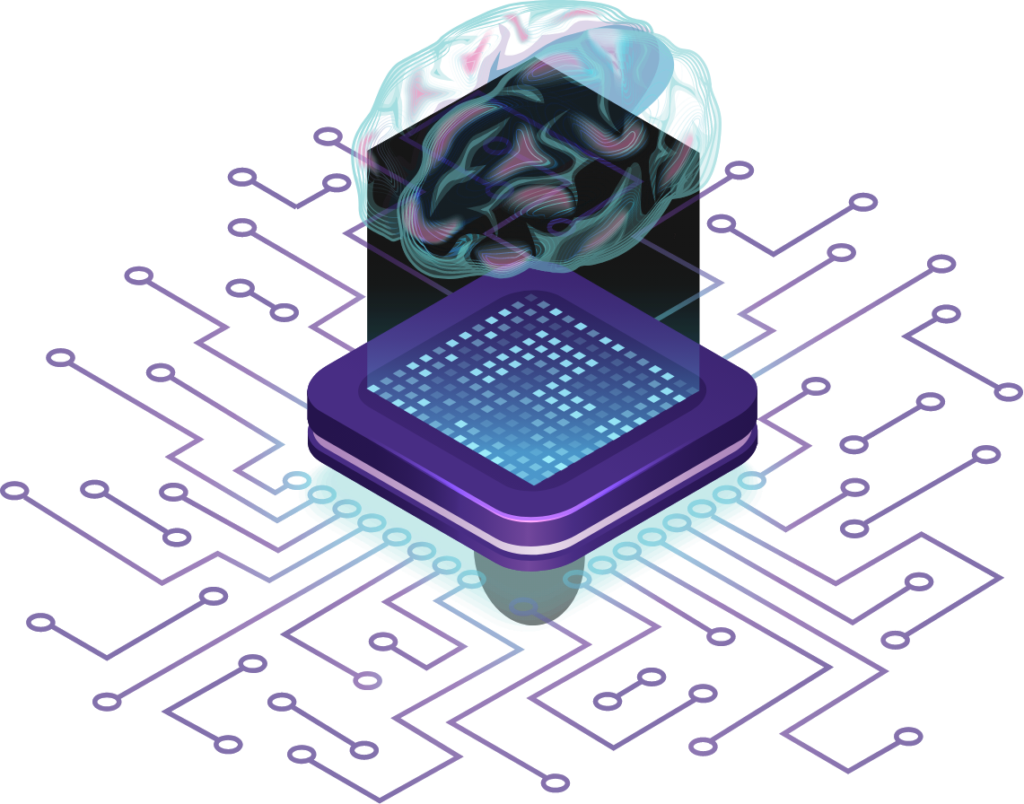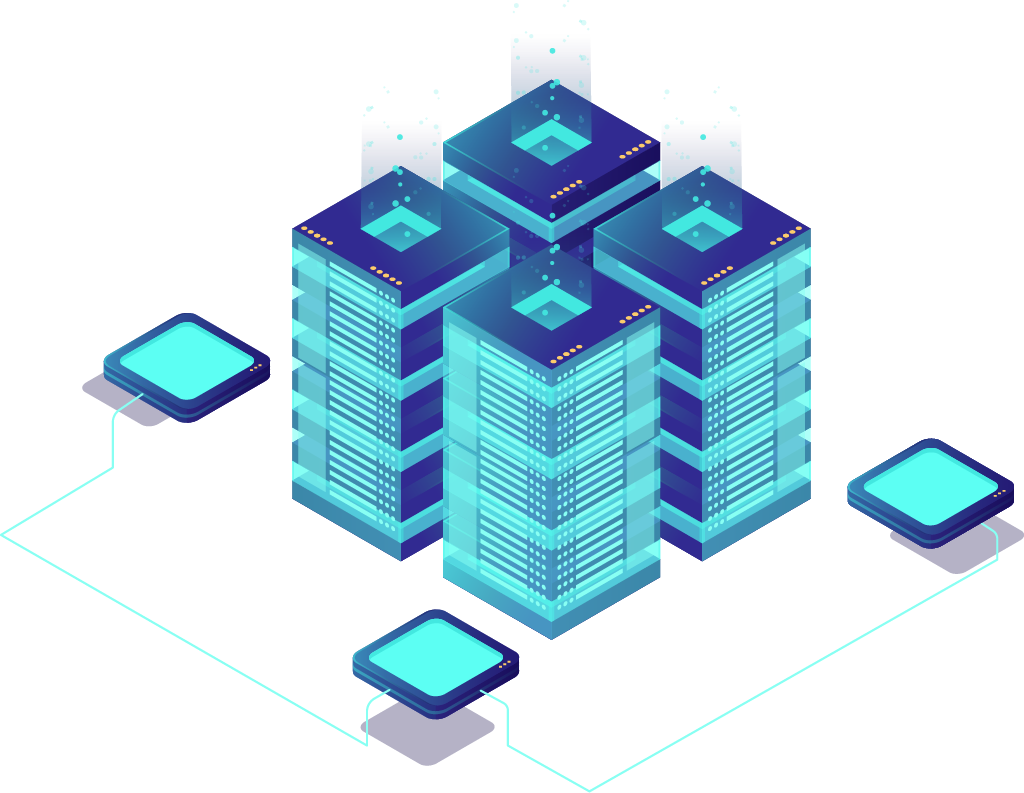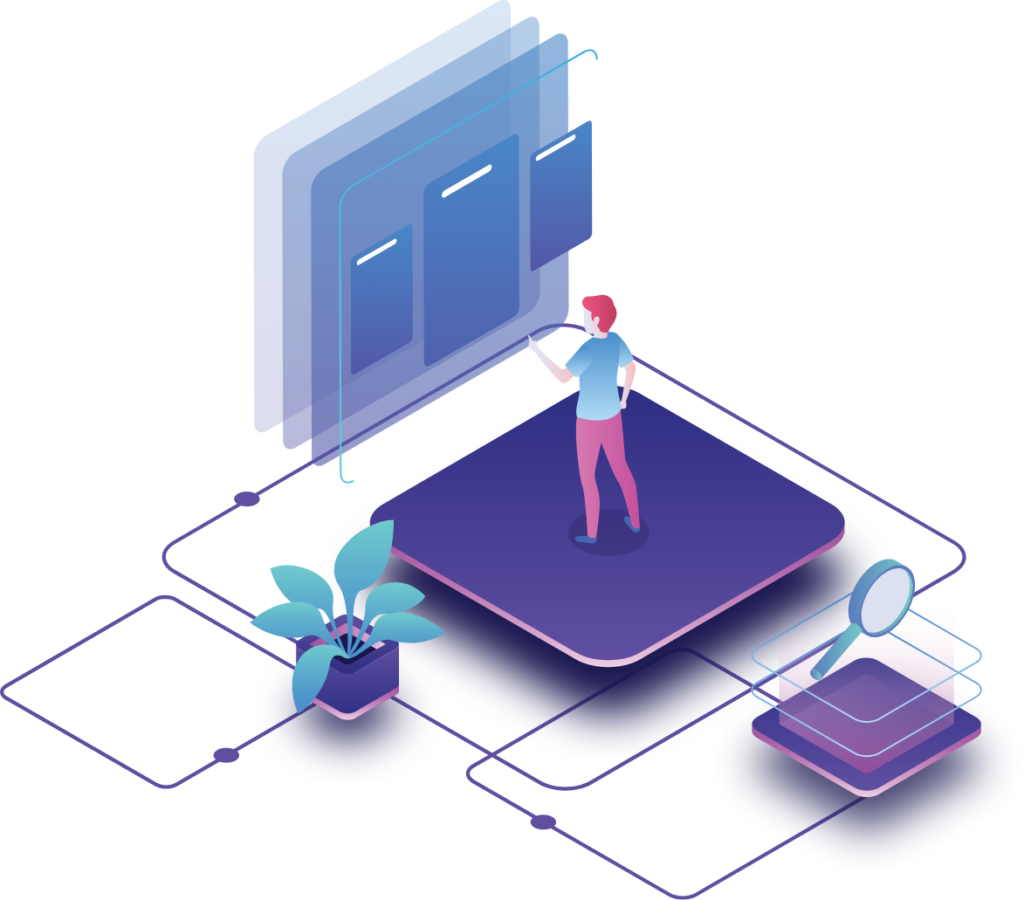One community at the intersection of AI, blockchain, and big data, building one record of all that matters
Who, What, Where, When and Why
The fundamental ontology of the human mind and our global memory



Our minds and ideas are linked by the five W’s. Who, What, Where, When, and Why. Person, Place, Time, Action, and Reason. Five small words that connect every event in history to every event you know. That’s how we think, how we learn, and how we remember. We weave together all our senses, all our experiences, all we can find in the world, all we can read, and all we can find on the internet for answers to those five simple questions, but most of our life-long learning and discovery is locked inside our heads.
The best of us write new books, blogs, articles, plays, songs, or films, leaving a tiny but lasting record of who they were, what they found, and why it mattered. For the rest of us, if we don’t write down or share what we learned, it’s like our ideas, questions, thoughts, searches, and discoveries never happened.
Apiri’s patented, universal approach to mapping and sorting the connections between human events enables the world to create a comprehensive, crowdsourced, living, searchable record of human history that grows and improves with every person’s contribution.
We’re a world of authors, dreamers, builders, seekers, and detectives. Until now, we each knew but one small part of our common story, and held one piece to a puzzle that none of us has yet seen. What can we see and learn if we put all our minds and memories to work on one common goal?
Apiri's Context Engine
The Next Evolution in Human Understanding



The Apiri Corporation holds a patent for what we call a Context Engine.
The Context Engine is an integrated technology capability based on ancient principles of human understanding. The Context Engine enables exploration and unprecedented levels of analysis of the relationships, meaning, and connections between all human events. Everything in our lived experience is connected or related in a logical way to everything else. Our Context Engine shows how.
Using the classical Greek ‘Five W’ construct of Who, Where, When, What and Why, the Context Engine consists of database structures, algorithms, and user experience components that deliver a new ability for individuals and applications to document, investigate, understand and anticipate the circumstances and events of human activity. With our Context Engine, you can connect anyone to anyone else, through clear and intuitive combinations of time, place, person, action, and reason.
The Context Engine is the next stage of evolution of the Search Engine concept that has been the defining mechanism for navigation of digital information since the mid-1990s, in a way that Artificial Intelligence and Large Language Models (LLMs) absolutely are not. We are a finely sharpened scalpel in a world of blunted axes.
We believe our Context Engine will enable the emergence of Large Context Models, which can understand how human events fit into the larger landscape. Using context and meaning to transition to Large Context Models (LCMs) from text based Large Language Models (LLM) will enhance the scope, accuracy, insight and veracity of both AI models and human applications to utilize and extract value from digital information.
How Apiri is Different
The Unmatched Power of apiri: Mapping Human History through 5Ws
Apiri absorbs and sorts information about people and draws connections between events the way the human mind does, which is fundamentally different from the way the digital world works today. With Apiri, anyone can surf all known and knowable history according to any combination of person, place, time, action, and reason, and can travel intuitively from any event in history to any other.
Social media and search engines remain a series of two-dimensional pages of photos, videos, and text, which we absorb an interpret the same way we have read books for thousands of years. Electronic screens have replaced papyrus, paper, photos, and film, but we still see a collection of two-dimensional words and images. Just as we do with paper and books, we then perform a common but internal and unsharable set of steps to connect those words and images to other words and images in our minds and memories. In this sense, Wikipedia, Facebook, Google, and others are just virtual versions of real-world libraries, with proprietary and unintuitive connections working behind the scenes to make you feel a certain way, or buy a certain product. Apiri is different because the internal, individual connections we used to make are now the fundamental building blocks of the Apiri information space. We all can see what we add to Apiri, without any corporate influence or profit motive.
Apiri turns the search engine and social media business models inside out. In the Apiri community, all information is a public resource. Unlike search engines with proprietary algorithms and massive user data collection regimes, Apiri is transparent and open. We want everyone to understand how the machine works, and we DON’T want to sell your information to anyone. Unlike major social media platforms, Apiri gives users full control over all personal data, and all information they share. Builders and authors in the Apiri community are granted blockchain-backed authorship rights to any details they add to the Apiri data model, and Apiri will provide the marketplace for the transfer and licensing of those rights.
The more we add to Apiri, the more valuable Apiri becomes. As Apiri grows in value, so does the value of our individual contributions. We believe that Apiri is uniquely conducive to online collaboration and content creation. In a near-future world that is buried in AI-generated online content, Apiri will be a bastion of human-to-human interaction, an online community we can trust. At scale, Apiri will be the definitive reference for any AI that needs to understand the history of humanity, how humans think, and what really matters. At its core, that is all that Apiri is. And that’s like nothing we’ve seen.



Our Mission
Apiri will build the next great repository of human thoughts, dreams, ideas, and knowledge. Apiri will be a safe space where people can meet, share, collaborate, explore, debate, and find purpose. In a rapidly changing digital world that humans may soon share with AI, Apiri will be the fundamental resource for all that is true, real, and important to human society.
Apiri’s mission is to change the way people use information by connecting knowledge and preserving the paths people take to find answers. We want to create a platform where everything added relates to everything else, promoting context and understanding. Our Context Engine sorts information like our minds do, but better, allowing users to find new connections and insights. Our aim is to make knowledge accessible to all and enable individuals to make informed decisions for their own benefit and that of society



David Ross is the CEO and co-inventor of the Context Engine. With 23 years of experience as an intelligence officer in the U.S. Marine Corps Reserve, he served in Afghanistan, Africa, and Southeast Asia. He also has 14 years of experience as an attorney in both government and private practice with a commercial litigation firm. David is an Eagle Scout and has been volunteering with the Boy Scouts of America for the past seven years. He resides in Falls Church, VA.
Humberto Morales is the CTO and software architect at apiri. He has over two decades of experience scaling several startup software companies in Southern California, including eForce Media, GTC Corporation, Sysdome, Move, Inc., PageNET, and Silverlake Communications. Humberto divides his time between Seattle, WA and Osaka, Japan, and is a busy parent to a young child.
Michael Touse is the Chief Data Scientist at apiri. Following a 20-year career in the U.S. Navy, where he earned multiple professional and academic distinctions, including a PhD in Applied Physics from the U.S. Naval Postgraduate School, he is currently an Assistant VP and Data Scientist at the largest Credit Union in the nation. Michael is an active volunteer with the Boy Scouts, a non-profit supporting military families, and various parishes of the Episcopal Church. He lives in McLean, VA
Ted Ross is the co-inventor and concept architect of the Context Engine. With 30 years of experience as a software consultant with IBM, Price-Waterhouse, and Anderson Consulting (now Accenture), he specializes in large-scale data solutions for federal agencies and Fortune-500 companies. Ted is also an Eagle Scout, an active marathon runner, and a volunteer with the national Waterkeeper Alliance. He lives in Boulder, CO.
Susan Morales is the newest member of the apiri team and serves as the user interface/product designer. With more than 20 years of experience as a UI product designer, Creative Director, and foundational design architect for startups, Fortune 500, and celebrity brands across a wide range of industries, Susan brings a wealth of knowledge to the team.
November 2019 – USPTO granted U.S. patent number 10,467,065(.pdf) to David and Ted Ross 2020 – David and Ted conduct market research and interviews with advisors.
August 2021 – David, Ted, Mike and Humberto signed corporate bylaws as co-founders.
November 2021 – User Interface consultant wireframes for MVP finalized.
January 2022 – Articles of incorporation filed with State of Delaware in.
February 2022 – Software architecture for prototype described.
2022 – Trademark application for “Apiri” and “Context Engine” submited.
October 2023 – Apiri awarded a $3,500 grant from the Virginia Innovation Partnership Corporation (VIPC)
January 2023 – Target date to submit a full grant proposal to the National Science Foundation
June 2023 – Apiri passed the first round of screening for a Small Business Innovation Research (SBIR) Grant from the National Science Foundation.
Ongoing – Discussions with patent attorneys for a new patent application are underway.



Get involved
Please reach out to us
We’re building our team and would like to connect with anyone who has expertise in blockchain development, who is interested in novel use cases for a distributed ledger, or who has a need for newer, better artificial intelligence training materials and methods.